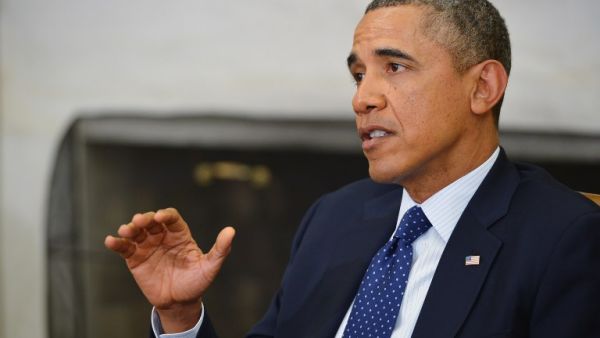As the U.S. Congress backed new sanctions on Iran, President Barack Obama urged lawmakers on Monday to give diplomacy with Tehran a chance.
If imposed, fresh sanctions could jeopardize an interim nuclear deal with the Islamic Republic.
Obama said that the six-month pact due to go into force on Jan. 20 after being concluded at the weekend, offered a “door of opportunity” for Iran to have better relations with the outside world, after decades of deep antagonism with the United States.
“My preference is for peace and diplomacy,” Obama told reporters in the Oval Office.
“This is one of the reasons why I’ve sent a message to Congress that now is not the time for us to impose new sanctions. What we want to do is give diplomacy a chance and give peace a chance.”
The White House has previously warned that Obama will veto any bill enacted by Congress.
Still, there are increasing signs that bipartisan support for a bill to impose new sanctions on Iran may be nearing the two-thirds majority required to override such a veto, according to Agence France-Presse.
It is currently unclear if and when the bill will be brought up for a vote in Congress. The president will have a chance to press home his case for a delay in new sanctions when he makes his annual State of the Union address on January 28.
Lawmakers who support the bill say tough sanctions brought Iran to the negotiating table and stiffer measures would increase Obama’s leverage in talks between the Islamic Republic and the P5+1 group of world powers.
Obama has insisted that Washington must test Iranian President Hassan Rouhani’s willingness to honor a pledge to seek a peaceful nuclear deal, despite opposition from many hawks on Capitol Hill and deep reservations by America’s closest Middle Eastern ally, Israel.
His aides say that if new sanctions force the nuclear talks to collapse, Washington could be forced into another war in the Middle East to thwart the Islamic Republic’s nuclear ambitions.








